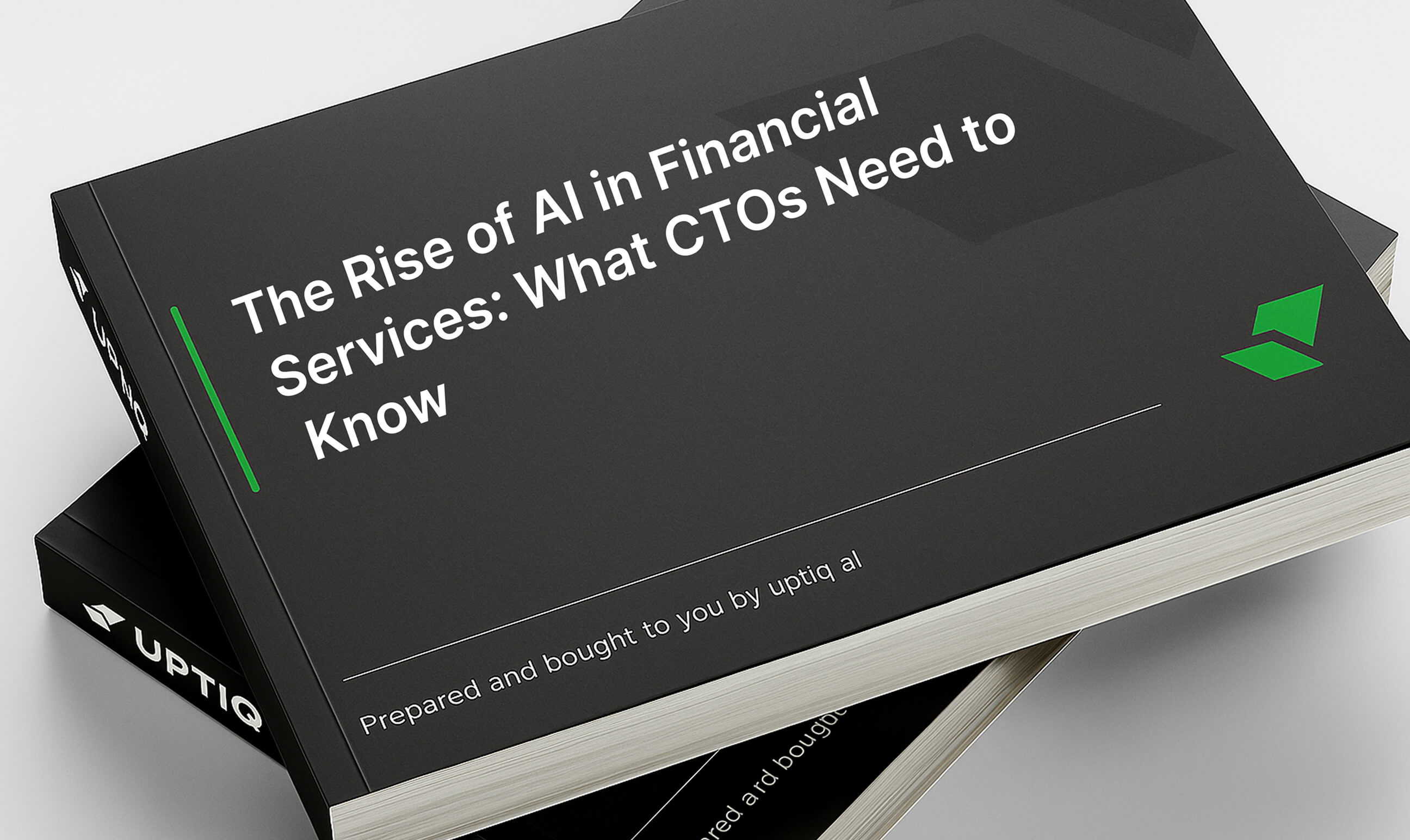Series B:
Uptiq raises $25M to add AI agents to bank workflows
Read More
-


Artificial Intelligence (AI) is no longer a future ambition for financial institutions—it's a present-day imperative. From predictive analytics to autonomous decision-making, AI is reshaping how banks, lenders, wealth managers, and insurers operate. For CTOs leading this transformation, staying ahead means more than just understanding AI—it requires strategic alignment, the right tools, and a trusted infrastructure.
Here’s what CTOs in financial services need to know about the rise of AI, and why platforms like Uptiq.ai are helping drive this revolution faster and smarter.
According to PwC, AI could contribute up to $15.7 trillion to the global economy by 2030, and $1 trillion of that is expected to impact the banking sector alone. Other insights:
Whether it’s credit scoring, fraud detection, or robo-advisory, the trend is clear: AI is no longer a siloed initiative—it’s becoming the central nervous system of digital financial operations.
CTOs across the industry are rapidly adopting AI to optimize various workflows. Some key use cases:
AI models assess borrower risk in real-time using alternative data like transaction history, behavioral scores, and geolocation patterns. This speeds up approvals while reducing defaults.
Machine learning algorithms identify anomalous transactions within milliseconds, flagging threats faster than rule-based systems ever could.
AI-powered virtual assistants are resolving 70%+ of Tier-1 support tickets through chat and voice, freeing up human reps for complex issues.
Robo-advisors powered by AI provide hyper-personalized investment strategies based on client goals, market conditions, and risk profiles.
Natural Language Processing (NLP) agents help parse regulatory documents, flag discrepancies, and automate compliance reporting.
While the promise of AI is immense, CTOs still face key obstacles:
This is where generic AI workbenches fall short—and where Uptiq.ai stands apart.
Uptiq.ai isn’t just another machine learning platform—it’s a financially native AI workbench, engineered for fast, compliant, and scalable AI agent deployment.
Access a library of modular agents designed for KYC, credit decisioning, onboarding, and more—ready to customize and deploy.
Even non-ML developers can create, test, and deploy agents using intuitive visual tools—significantly reducing dev cycles.
Chain multiple agents into complex workflows (e.g., fraud check → credit scoring → approval) with built-in business logic.
Uptiq tracks decision logs, explains model predictions, and ensures data privacy—meeting the toughest fintech compliance requirements.
Simulate agent performance on synthetic or historical data before live deployment, eliminating surprises post-launch.
And perhaps most importantly: CTOs using Uptiq.ai report greater cross-team collaboration, as product, compliance, and dev teams can all contribute to the AI build process.
AI is no longer a differentiator—it’s a requirement for survival in modern financial services. But succeeding with AI doesn’t mean hiring 50 data scientists or reinventing your stack from scratch.
With platforms like Uptiq.ai, CTOs can:
The financial services landscape is transforming—faster than ever. CTOs must not only embrace AI, but do so in a way that is scalable, secure, and specialized. Uptiq.ai offers the foundation to build that future, today.